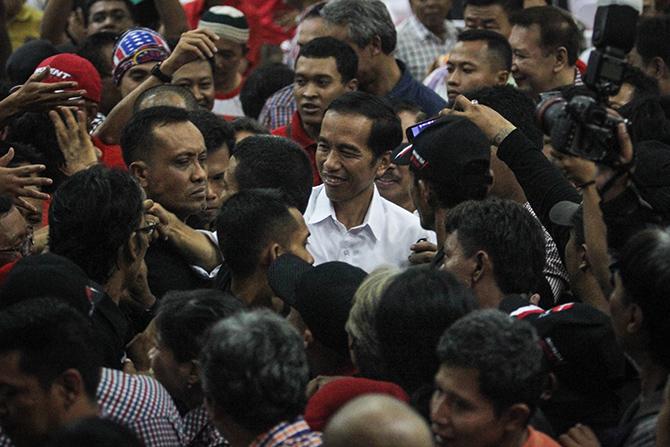
In this section, I will provide only a few seeds for a national discussion about what the external environment might look like in Wave 3 and where and how Indonesia has an advantage versus other competing nations to “ride the biggest new waves.”
While international and domestic trade and foreign direct investment will remain important components of Indonesia’s Wave 3 strategy, the debate must quickly be widened to include domestic policy and institutional reforms that are focused also on better integrating the domestic market and improving total factor productivity. The good news is that the size and diversity of Indonesia’s domestic market offers huge opportunities to achieve gains from domestic trade. Indonesia’s challenge will be that protection has left it with weak economic institutions that remain fragile and are often politically influenced and inward-looking. Large parts of the economy remain dominated by state enterprises. There is need for the type of holistic economic strategy process that Singapore undertook in 1984-85, along with subsequent heavy investment in institutional capacity, policy reform and skill-building.
President Joko has the advantage of having been elected on a platform of change, not just for the elites but for the whole nation. The challenge today will be to fast-track enough high-impact and high-profile reforms to sustain his political capital. With this, he can continue to educate voters on the need to open the economy to greater international and domestic competition and reforms. There will be short-term pain preceding the longer-term gain, so the president must consistently reinforce the plan and report on progress to his cabinet, the House of Representatives and directly to the Indonesian people.
In concluding this essay, I wish to make the case for a bold national plan, and believe Indonesia can lead the way through the following:
- President Joko has the necessary political legitimacy, a clear long-term vision with short-term targets, and the advantage of lessons learned from other regional transformation programs.
- New technologies can now enable the development and rollout of e-government to “obliterate” red tape, overcome national-regional policy and process overlaps, enhance the quality and value of public services to Indonesia’s tech-savvy people, and reduce the space for corruption, collusion and nepotism.
- These new programs can be funded by reconstituting the successful state-owned enterprise transformation program rolled out in 1999-2000 to enhance the value of Indonesia’s state companies – the gap was $100 billion at that time. More than half of that enhanced value was believed to be able to come from just one sector: energy and mining.
The focus for Indonesia must be on integrating its large but fragmented local markets, and on increasing the returns to all factors of production in all sectors of the economy. This will require a complex combination of policy reform (like in Singapore and South Korea); streamlining red tape (Thailand); enhancing state-owned enterprise competitiveness (Indonesia 1999); plus enhanced national infrastructure investment. Underpinning all of this must be political will and institutional capacity building.







 resized.png)
